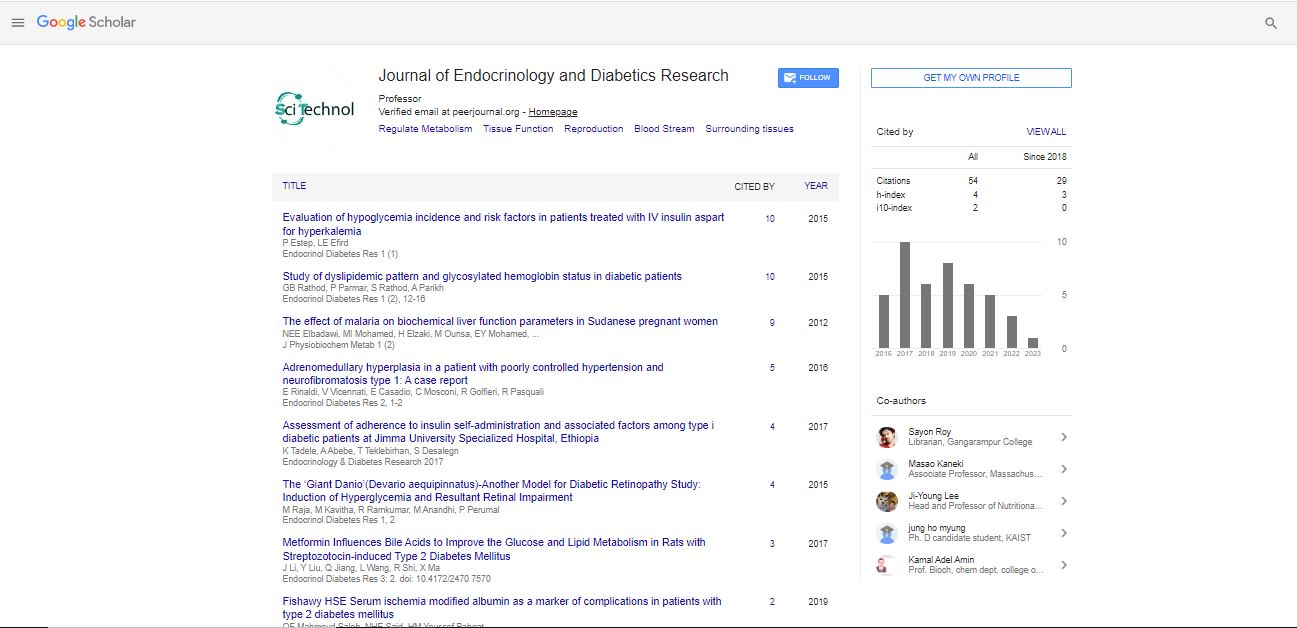Effect of melatonin on the peripheral insulin resistance through its hepatic signaling on a diet induced obesity experimental model
Diego Fajardo, V Jimenez-Ortega, P Caballero, P Cano-Barquilla, A I Esquifino and P Fernandez Mateos
Universidad Complutense de Madrid, Spain
Instituto de Investigacion Sanitaria Hospital Clinico San Carlos, Spain
: Endocrinol Diabetes Res
Abstract
Obesity, a major risk factor for diabetes type-2 is associated with an increased peripheral resistance to insulin and a disorder in the metabolism of carbohydrates. A high-fat diet administration is an experimental model of obesity (DIO) characterized by insulin resistance as shown by the significantly augmented plasma insulin and glucose levels. This effect is prevented by melatonin administration together with the diet. This study aims to evaluate the effects of a melatonin administration on insulin signaling in liver while obesity is developed by a high fat diet. Controls and DIO rats received water with or without melatonin (25 μg/mL) for 11 weeks. At the end of the experiment, blood and liver samples were taking at 5 am, a representative hour of most important effects of melatonin on the photoperiodic cycle, as previously shown by our group. At that time, plasma insulin and blood glucose levels were measured to confirm the insulin resistance. Liver samples were used to study the relative expression of the genes encoding for Insulin Receptor (IR), IR Substrate-1 (IRS1), Phosphatidylinositol-3 Kinase (PI3K) and Protein Kinase B (PKB/Akt). Relative quantitation of the active phosphorylated protein PI3K and Akt were analyzed by western blot. Our results showed no differences on relative gene expression of genes between DIO and control groups. However, a higher and lower activation level of PI3K and Akt protein, respectively were observed in DIO animals as compared to control animals. Melatonin treatment increased the expression levels of all genes, as well as Akt and PI3K phosphorylation in DIO group. Our results suggest that melatonin prevents, at least partly, the peripheral insulin resistant observed in DIO animals, through its effects on PI3K and Akt activation in the liver.
Biography
Diego Fajardo is currently a Pharmacy student - Department of Biochemistry and Molecular Biology at Universidad Complutense de Madrid. His interest is in medical research.
E-mail: dfajardo@ucm.es
 Spanish
Spanish  Chinese
Chinese  Russian
Russian  German
German  French
French  Japanese
Japanese  Portuguese
Portuguese  Hindi
Hindi 


